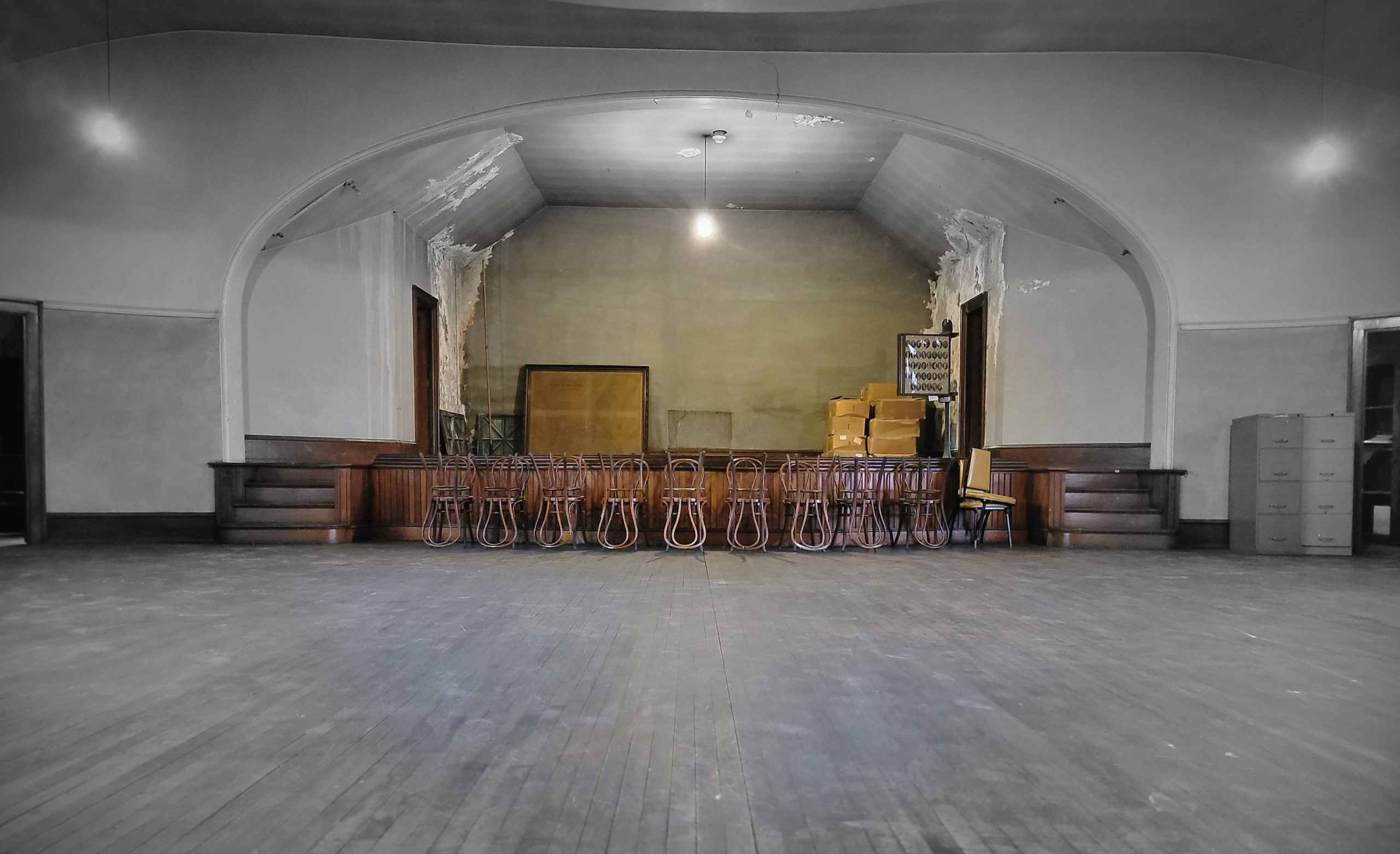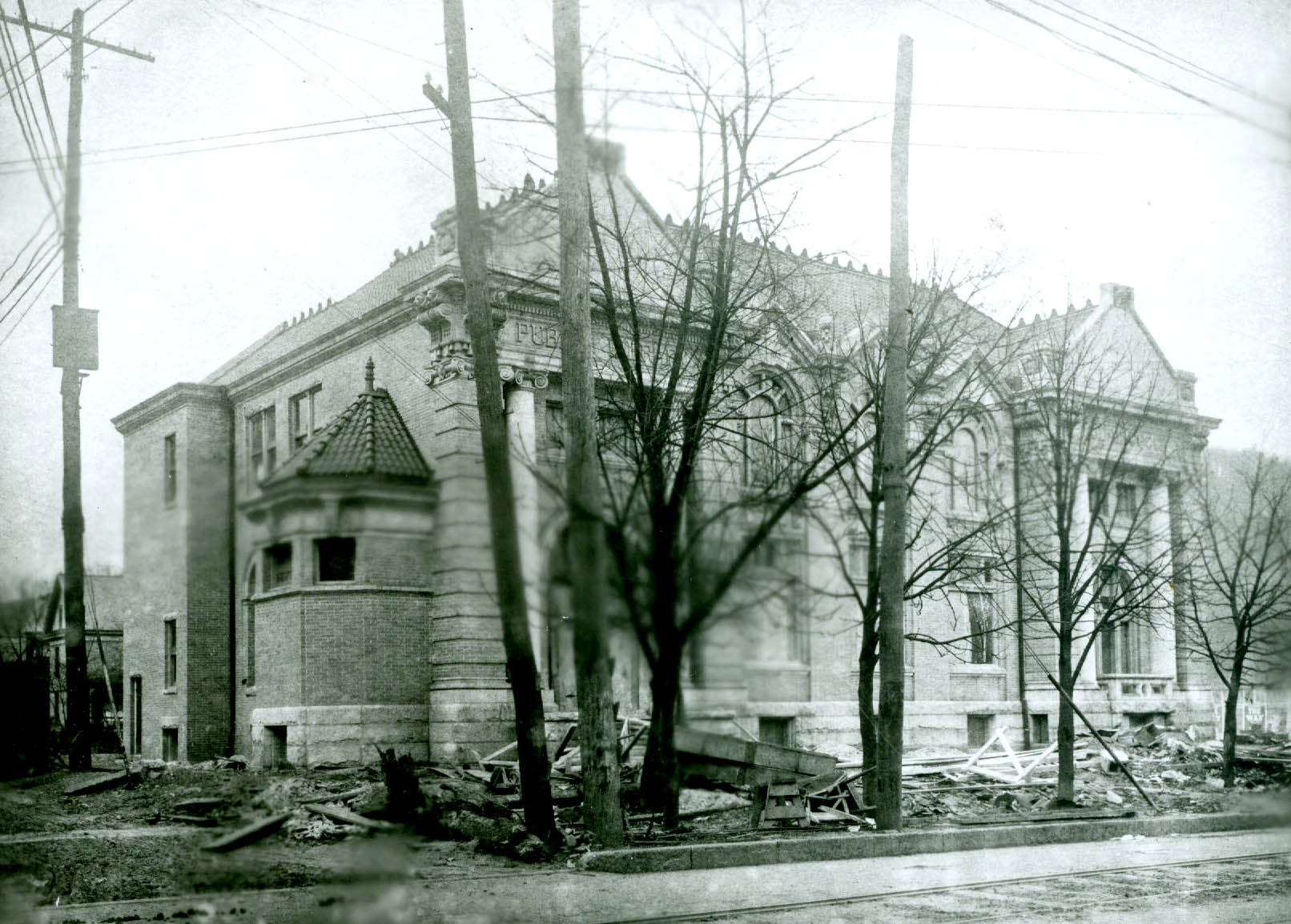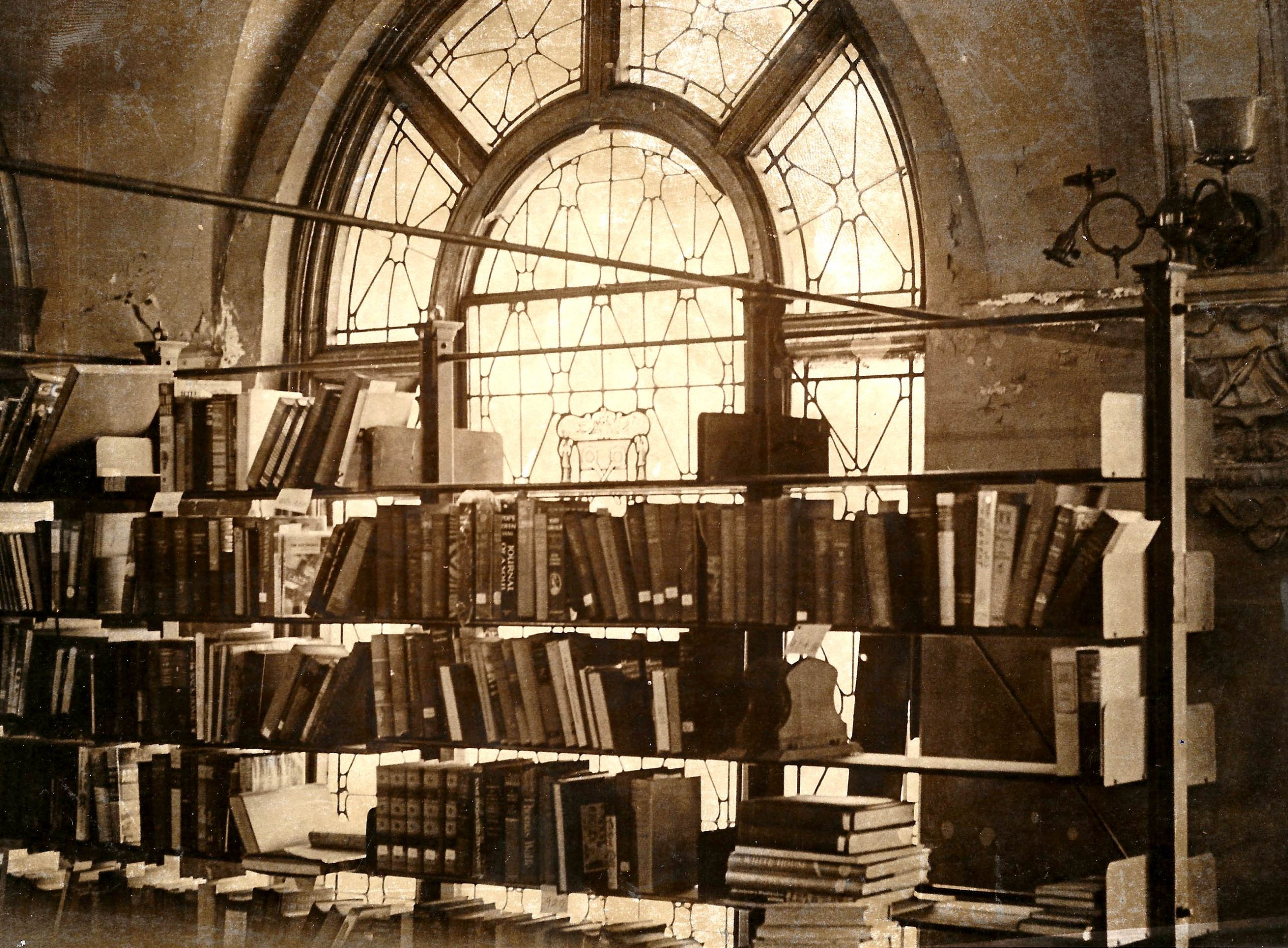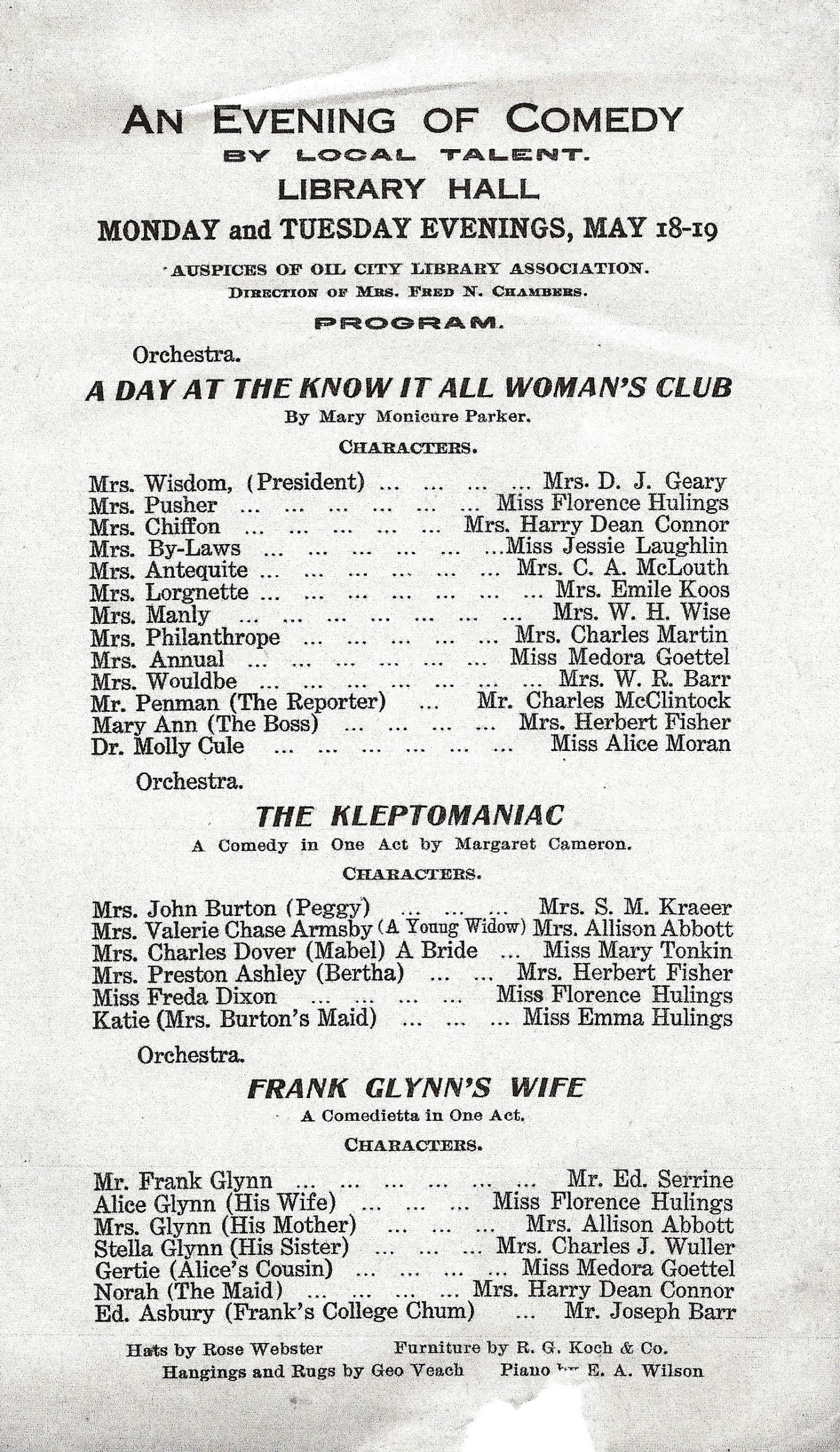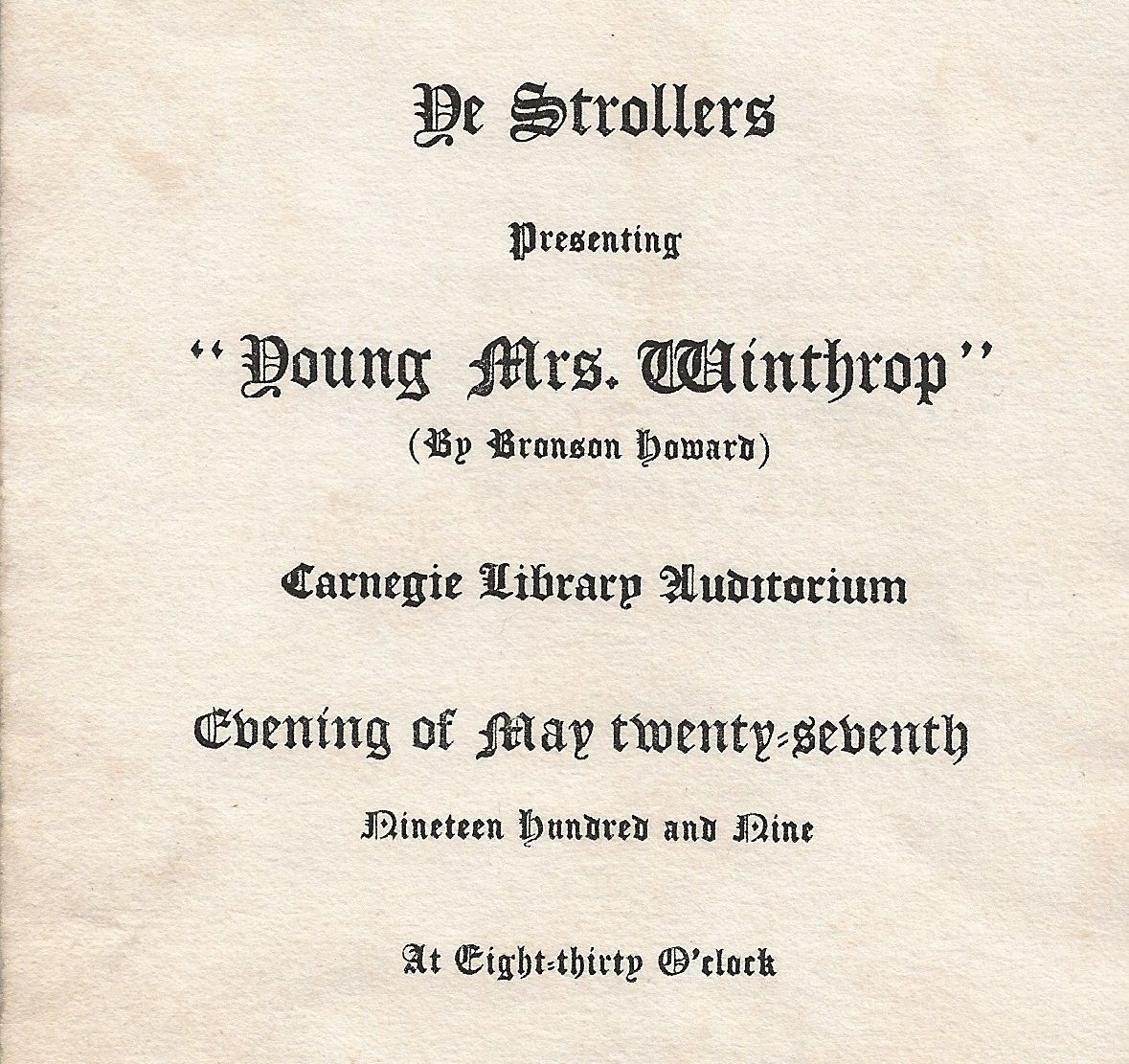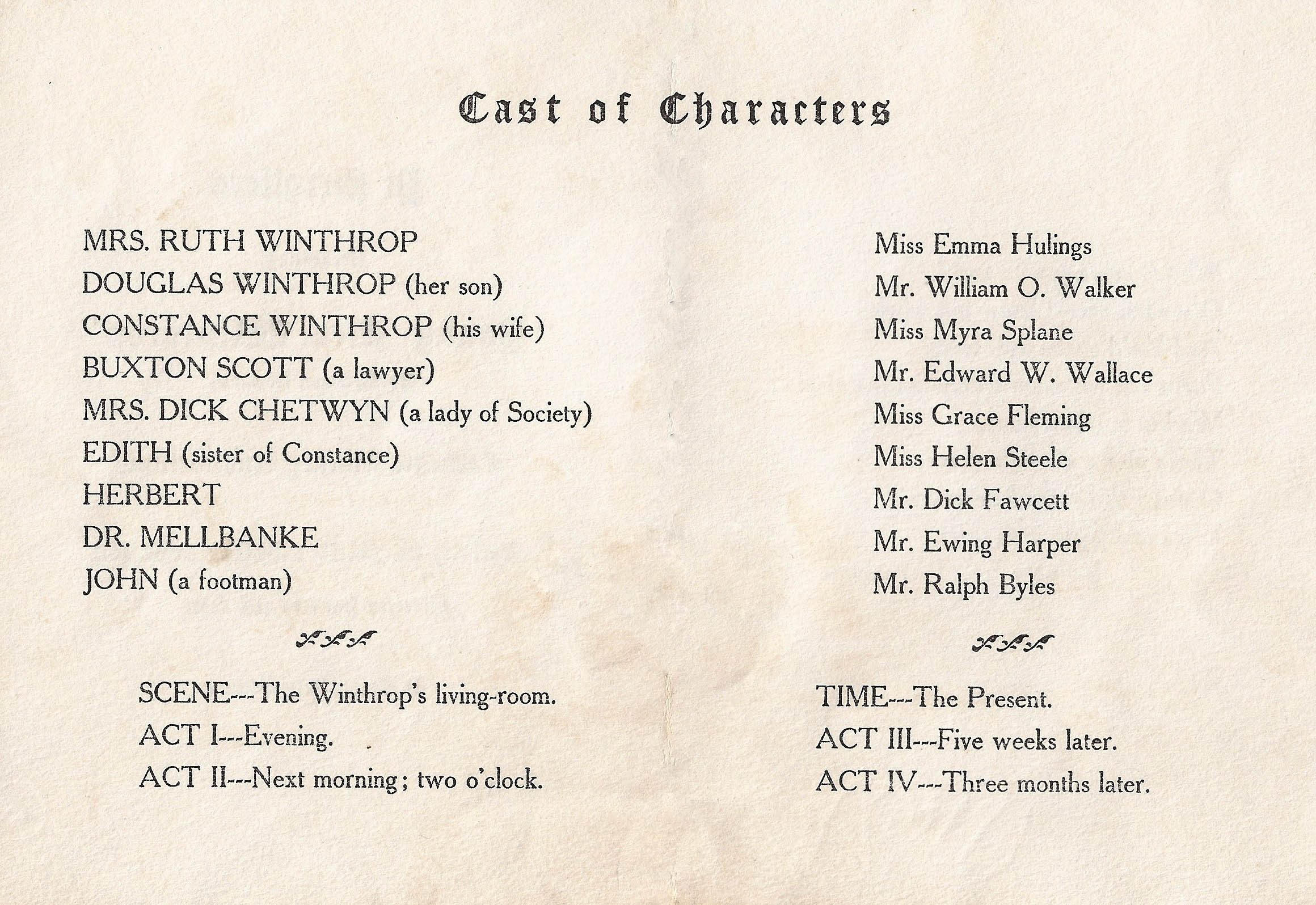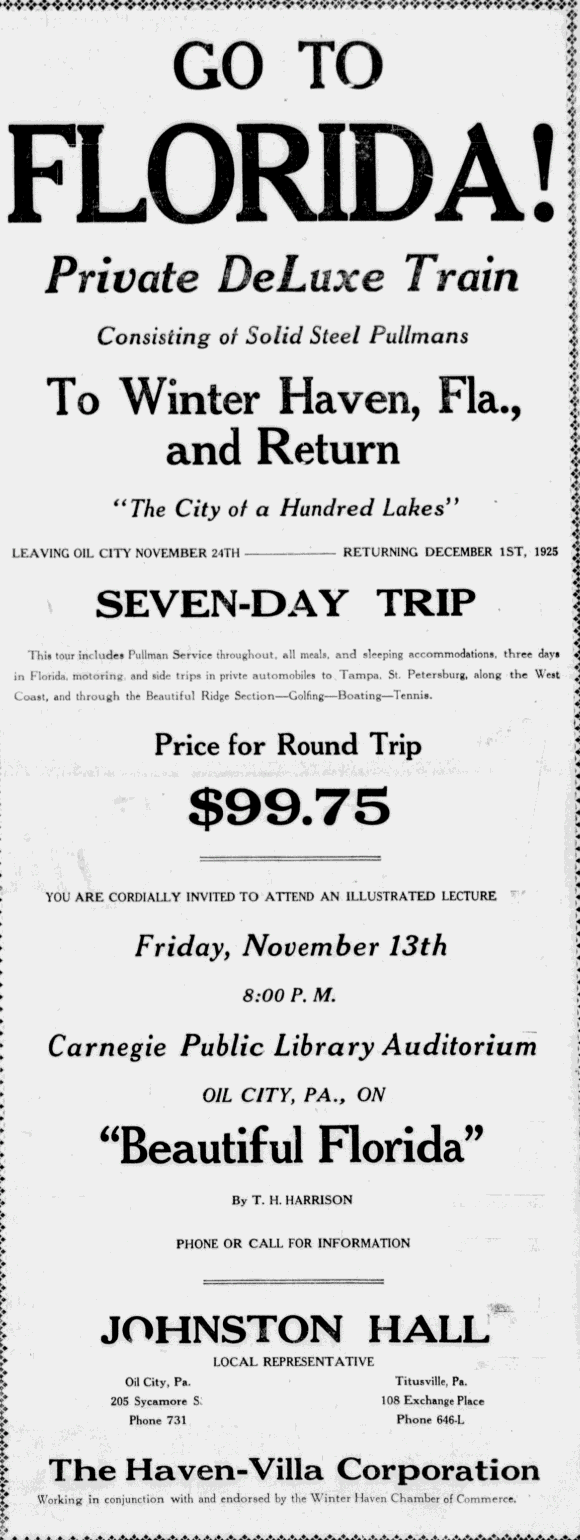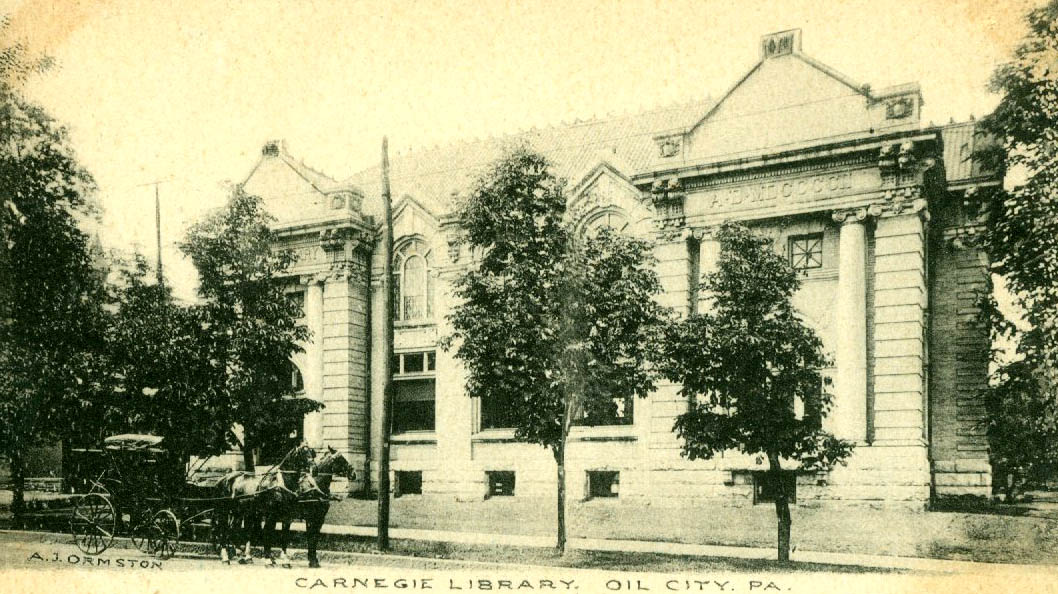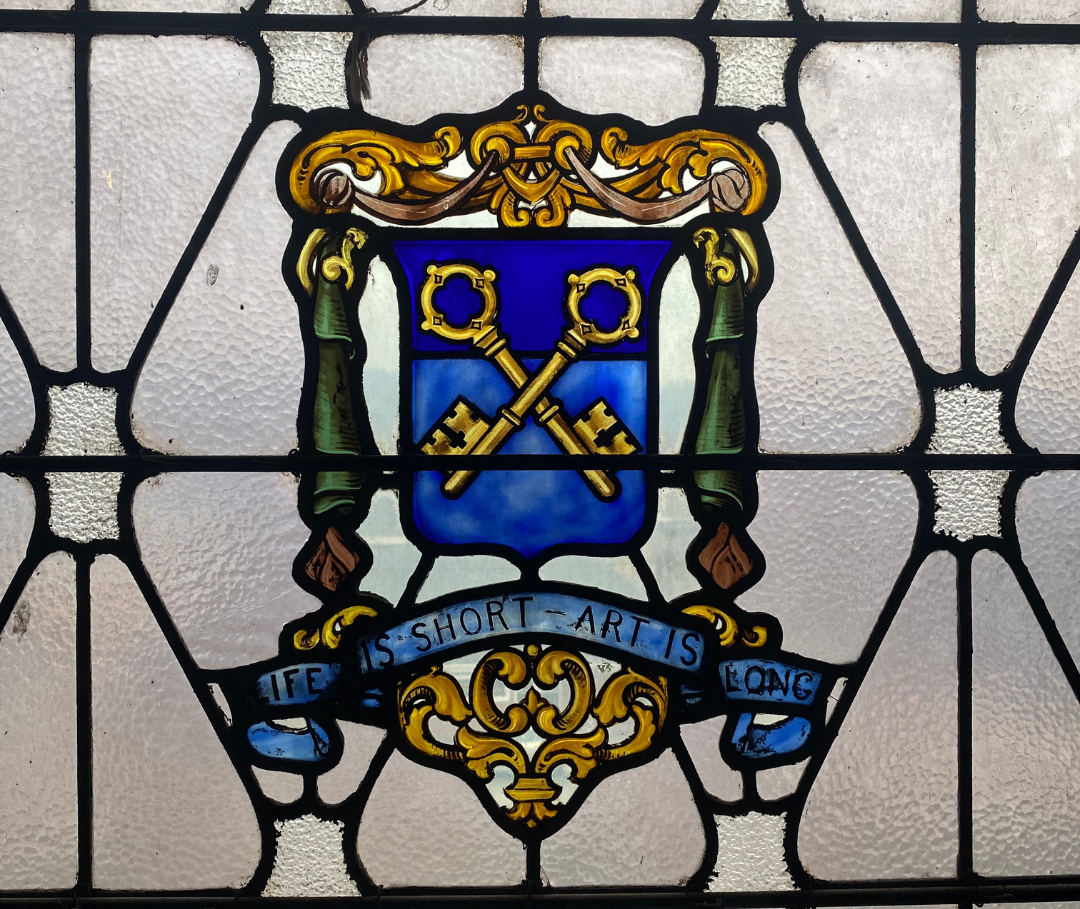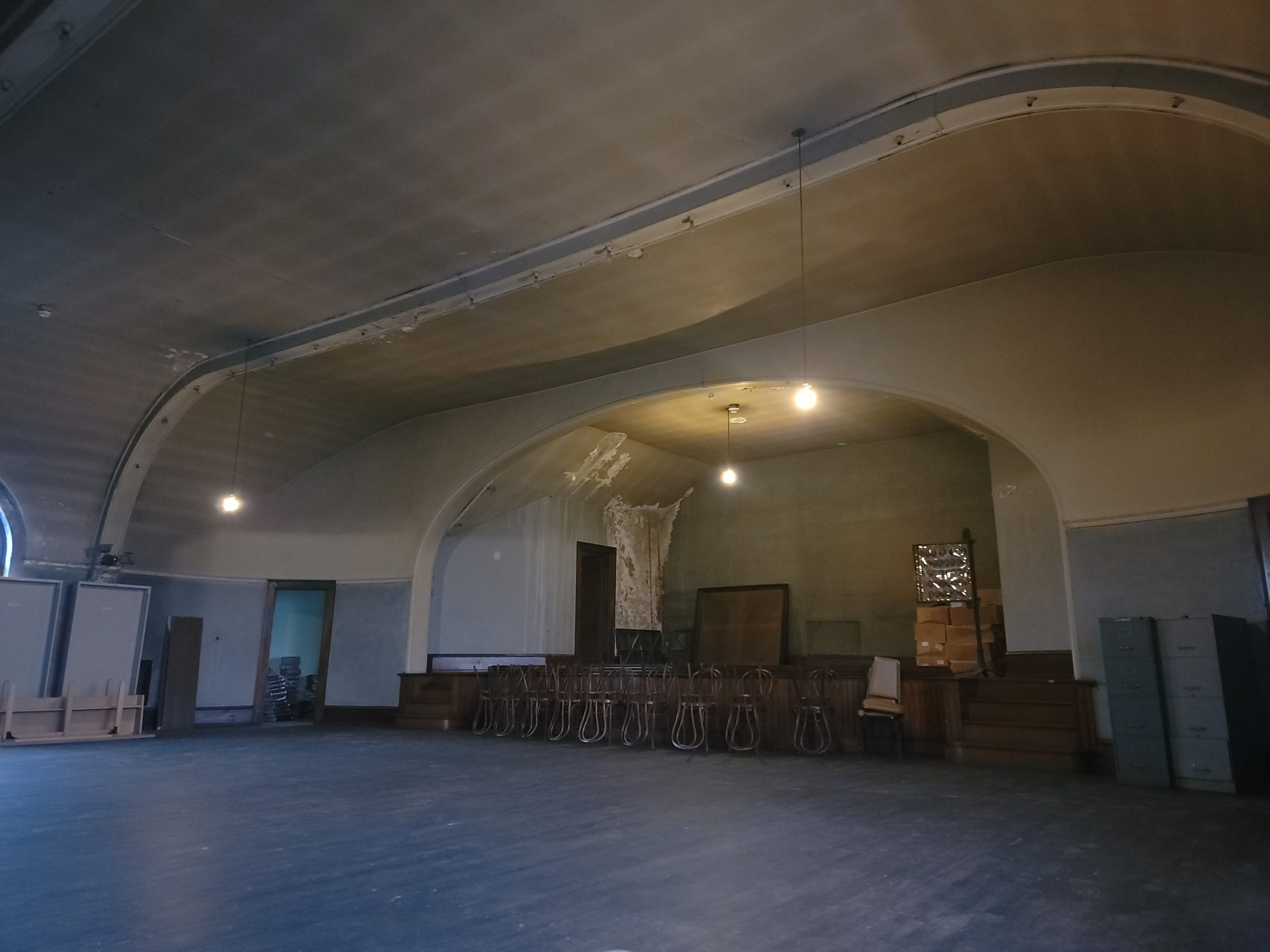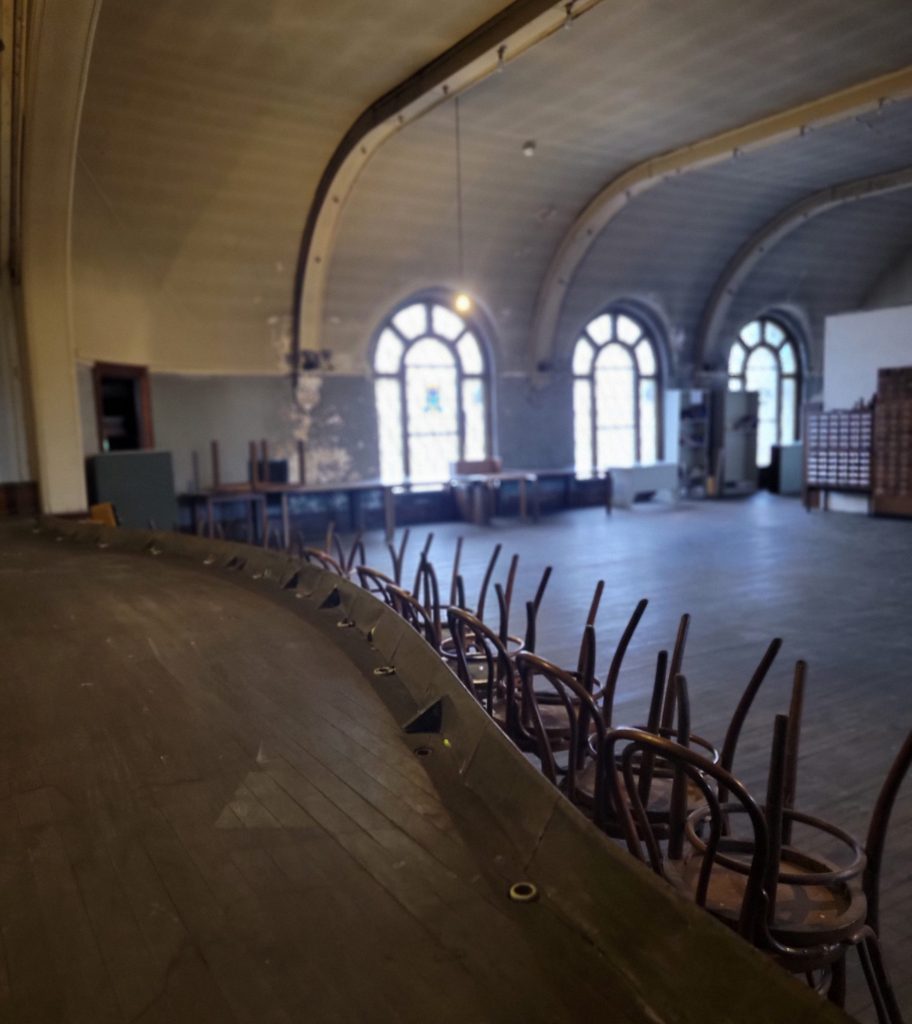Library Hall
- Judy Etzel
- June 23, 2023
- Hidden Heritage
- 13371
The Oil City Library, one of 1,412 public libraries built in the United States more than a century ago by Pittsburgh philanthropist Andrew Carnegie, is an imposing and magnificent building on Oil City’s South Side. It opened to the public as the Carnegie Library of Oil City on July 6, 1904, with much hoopla, pride and enthusiasm.
One of its most intriguing and elaborate spaces, though, has been empty and rather forlorn since the mid-1950s: Library Hall.
A group of Oil City residents organized the Petroleum Institute’s Lyceum in 1864 for the purpose of offering books to the public. It was reorganized in 1871 as the Oil City Library Association.
The movement to enhance the public’s reading habits got a major boost in 1888 when local women formed the Belles Lettres Club for the purpose of “maintaining a public library.” A few members contacted Andrew Carnegie in Pittsburgh who was starting his library building campaign across the nation.
He offered the city $40,000 to build a library provided the city would maintain and staff it.
A deal was struck with the city, charged with providing an annual stipend to the library, after a mass public meeting at the Oil Exchange resulted in an overwhelming vote to accept Carnegie’s gift. The Belles Lettres members then raised $11,000 to buy a corner lot on the city’s South Side.
Carnegie again stepped up and provided an additional $4,000 to improve the grounds and buy some library furniture.
A local newspaper noted, “The building, when completed, will undoubtedly be one of the most attractive in architectural beauty and perfection of materials used in its construction in this section of the state. … The library will be a source of education and recreation that will make it one of the foremost institutions of the city …. The investment made will be considered one of the best that the taxpayers of Oil City have ever made.” It was known as the Oil City Carnegie Library until the name was changed to Oil City Library in 1958.
One very unique draw at the library was the theater space, one that could accommodate 400 seats, that took over the entire second floor. It featured a hand carved four-foot high, 50-by-50-foot stage with dressing rooms on each side. Doors leading to them were curved wood. Six large leaded glass windows were installed on the sides of the hall and the two-story vaulted ceiling featured several rows of lights.
Used as a venue for a wide array of events, the theater was unexpectedly closed in the spring of 1955 by Oil City Council. At issue was money and council members said their library renovation budget was pegged at $30,000. It would be better spent to enhance the library’s first floor, insisted council. The city offered four options as to the second floor’s future: spend all the library money to renovate and repair the second floor; convert the second floor to private offices and rent them out; tear off the second floor and make the library a one-story building; or, raze the entire building and start over.
The chosen option was to renovate the downstairs and switch the second floor to storage space only with a small area set aside for historical collections and research.
Who used Library Hall?
A variety of groups ranging from Red Cross volunteers to theater organizations, student clubs, lecture classes and many more used the library’s theater and hall over the years.
- One of the most loyal groups was also the most vehement in its opposition to the closing in 1958. The Community Playhouse members strongly protested the proposed closure and argued they would paint the theater, make repairs and pay a monthly rent if it would remain open. Arguments led by Frank D. McLouth, Playhouse president, though, failed to sway city council.
- Several local churches tapped the library space for services and meetings. The relocation was prompted in some cases by renovations being done in the home churches or, in some instances, new church buildings being erected. The Christian Scientists group regularly held services upstairs in the library. Rev. C.H. Erickson, an evangelist, presented two services there in October 1930.
- In May 1921, the First Baptist Church advertised it would hold a special Mother’s Day observance on Sunday morning in the Library Hall.
- The theater/hall area was a popular place for musical performances and rehearsals because of excellent acoustics. In June 1927, a city festival chorus met regularly to rehearse “Elijah.”
- The Oil City Oratoris Society of St. Paul, a group of 120 members, held rehearsals in January 1914 in the theater area. Professor Ernest Lunt was the director.
- The Tri-City Orchestra under the direction of Major D. Olmes Sr. rehearsed upstairs in the library in preparation for performances at the Drake Theater or the Latonia Theater.
- The elaborate stage and dressing rooms attracted a number of organizations interested in presenting plays, musicals and comedies. One popular presentation was “An Evening of Comedy by Local Talent” held two evenings in May shortly after the library opened. The venue was listed as “Library Hall.” Another performance during that period was given by De Strollers in the “Carnegie Library Auditorium.”
- In 1910, “Bright Comediettas Delightfully Presented by Amateurs” was the headline of a newspaper article on a “Carnegie Hall” presentation at the library. The show benefited two mission groups at Second Presbyterian Church and most of the cast was comprised of church members. The show was under “the personal supervision” Mrs. Fred N. Chambers who was presented “a monster sheaf of American Beauty Roses” at the close of the show.
- The Library Hall was the scene, too, of many public service programs. In 1913, the Pennsylvania Railroad held a day-long seminar on “Safety First” for its crews. The local American Red Cross chapter assigned its many volunteers to roll bandages upstairs in the library to send to American troops serving in France during World War II.
Raising the Curtain on Act II
The sprawling area of Library Hall consumes the second floor of the library. While there are no structural issues, there is an overwhelming need to restore the interior architectural highlights, including intricate lighting, towering stained glass windows, a sprawling stage and dressing rooms and restroom facilities.
A campaign called Raising the Curtain on Act II has been launched to raise $800,000 in public donations and private/public grants to renovate and refurbish the theater.
Substantial contributions as well as proceeds from various library and Oil City Heritage Society sales are in hand now with a vigorous fundraising campaign due to begin soon.
The campaign, with a goal of raising $800,000 and set to begin this year, will result in a magnificent space available for concerts, plays, private events and much more.
The work will also include updating the adjacent Heritage Room that houses a vast collection of historical documents, photographs, artifacts, genealogy records and more. The space will be called Library Hall.
“The theater is fully intact and functional,” said Sarah Margherio, chairman of the Theater Restoration Committee. “We believe a renovation project in the theater area will enhance the library’s presence in the community. It will provide a delightful venue for a variety of library events as well as a location for events held by local groups, particularly theater-related organizations.
“It could also be utilized for private occasions, such as a party, children’s theater presentation, art show and more. The newly restored theater will be able to generate funds for the library with the rental for a wide assortment of civic and private events. The Oil City Library would benefit from an additional source of funds.”
Financial contributions, all tax deductible, to help with Raising the Curtain on Act II may be sent to the Oil City Library, 2 Central Ave., Oil City, PA 16301.
Written by Judy Etzel with research by Kay Dawson and design by Natalie Cubbon.
HIDDEN HERITAGE IS SPONSORED BY:
Jack Eckert & Susan Hahn
— In Memory of Carole Eckert —
Support This Project
Donations to the library are appreciated to help offset printing costs & make this project possible! Want to become a sponsor? Email us at promotions@oilregionlibraries.org to get started!
Make a Donation
